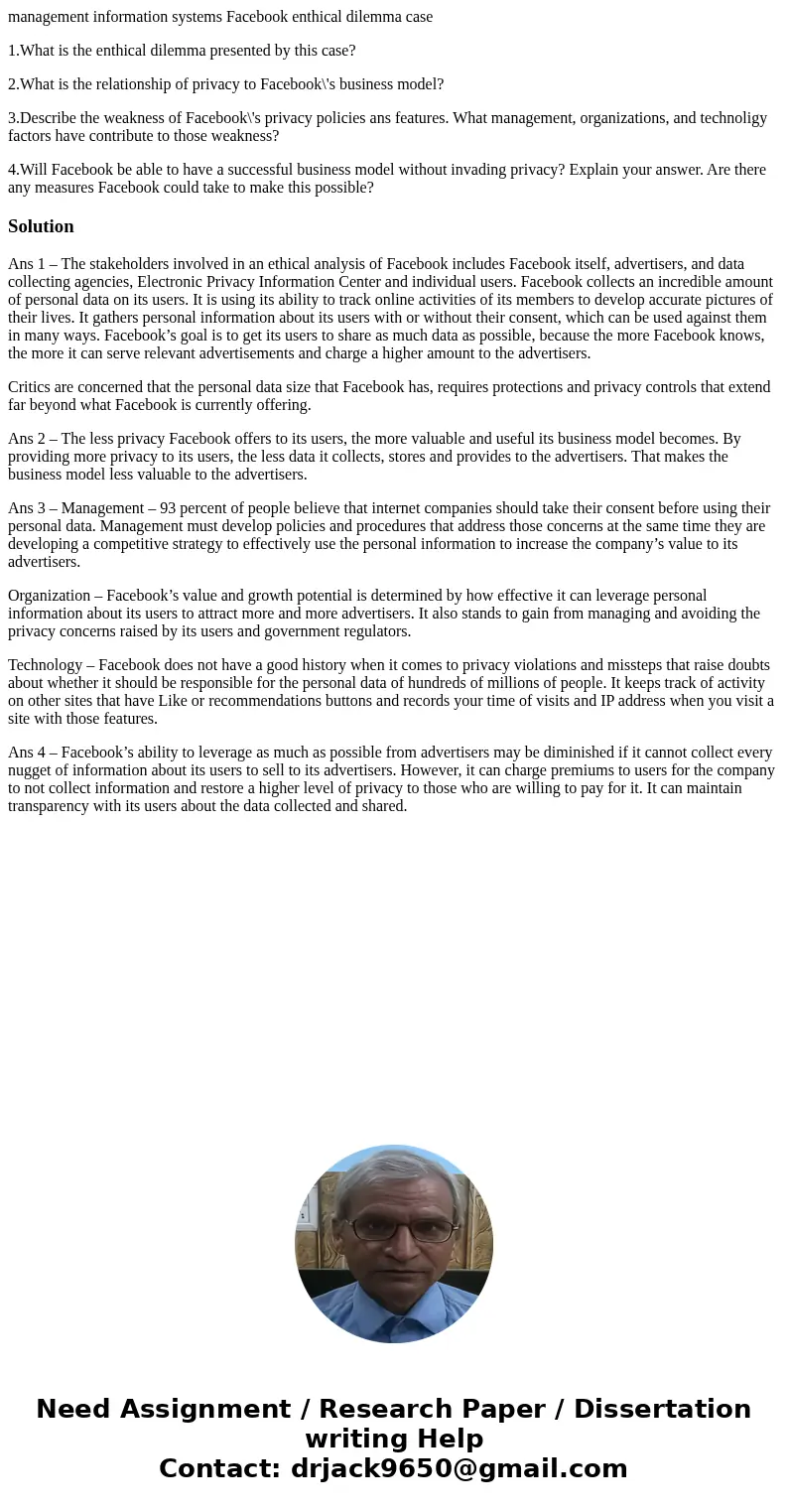management information systems Facebook enthical dilemma cas
management information systems Facebook enthical dilemma case
1.What is the enthical dilemma presented by this case?
2.What is the relationship of privacy to Facebook\'s business model?
3.Describe the weakness of Facebook\'s privacy policies ans features. What management, organizations, and technoligy factors have contribute to those weakness?
4.Will Facebook be able to have a successful business model without invading privacy? Explain your answer. Are there any measures Facebook could take to make this possible?
Solution
Ans 1 – The stakeholders involved in an ethical analysis of Facebook includes Facebook itself, advertisers, and data collecting agencies, Electronic Privacy Information Center and individual users. Facebook collects an incredible amount of personal data on its users. It is using its ability to track online activities of its members to develop accurate pictures of their lives. It gathers personal information about its users with or without their consent, which can be used against them in many ways. Facebook’s goal is to get its users to share as much data as possible, because the more Facebook knows, the more it can serve relevant advertisements and charge a higher amount to the advertisers.
Critics are concerned that the personal data size that Facebook has, requires protections and privacy controls that extend far beyond what Facebook is currently offering.
Ans 2 – The less privacy Facebook offers to its users, the more valuable and useful its business model becomes. By providing more privacy to its users, the less data it collects, stores and provides to the advertisers. That makes the business model less valuable to the advertisers.
Ans 3 – Management – 93 percent of people believe that internet companies should take their consent before using their personal data. Management must develop policies and procedures that address those concerns at the same time they are developing a competitive strategy to effectively use the personal information to increase the company’s value to its advertisers.
Organization – Facebook’s value and growth potential is determined by how effective it can leverage personal information about its users to attract more and more advertisers. It also stands to gain from managing and avoiding the privacy concerns raised by its users and government regulators.
Technology – Facebook does not have a good history when it comes to privacy violations and missteps that raise doubts about whether it should be responsible for the personal data of hundreds of millions of people. It keeps track of activity on other sites that have Like or recommendations buttons and records your time of visits and IP address when you visit a site with those features.
Ans 4 – Facebook’s ability to leverage as much as possible from advertisers may be diminished if it cannot collect every nugget of information about its users to sell to its advertisers. However, it can charge premiums to users for the company to not collect information and restore a higher level of privacy to those who are willing to pay for it. It can maintain transparency with its users about the data collected and shared.

 Homework Sourse
Homework Sourse